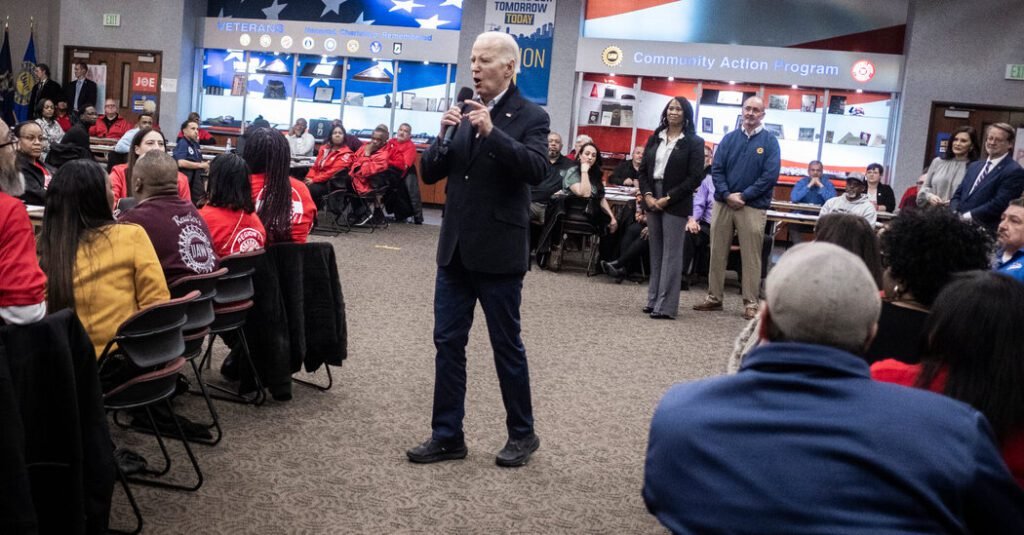But after the Hamas attacks and Israel’s response to Gaza, polls show the president losing support among Arab Americans. A poll late last year showed Mr. Biden’s support among that population falling from 59 percent to 17 percent, a drop of more than 40 percentage points since the last election.
Mr. Biden has been mobbed by people protesting his support for Israel at nearly every campaign event in recent weeks. At a third stop Thursday, at the Simple Palate restaurant, he encountered several protesters waving Palestinian flags and using a megaphone to shout “Genocide Joe” and “How many children did you kill today?”
Osama A. Siblani, editor of the Dearborn-based Arab American News, said Thursday that Mr. Biden’s standing among Arab voters was as low as it has ever been and that sanctions would not change that.
“We gave up on him doing anything,” Mr. Sibleni said, adding that he was struck by the lack of detail from the White House about the president’s schedule in Michigan, which he said appeared to be an effort to avoid potential protests.
Before Mr. Biden’s trip on Thursday, the White House and the president’s re-election campaign had given little information about where he was going.
“If the community is not going to be able to protest his visit,” Mr. Sibleni said, “we will give him the answer on February 27,” a reference to the date of the Michigan Democratic presidential primary.
A spokeswoman for Mr. Biden’s campaign disputed the idea that the campaign was secretive, noting that Mr. Biden often appears at small events that are not announced in advance.
Protesters believe Mr Biden has not done enough to prevent the killing of thousands of Palestinians by Israel. Authorities in Gaza say at least 26,000 people have been killed during Israel’s military campaign against Hamas.
Officials said the sanctions would not apply to US citizens living in Israel. State Department officials identified the four Israelis named in the sanctions Thursday as David Chai Chasdai, Einan Tanzil, Shalom Ziherman and Yinon Levy.
In a press release on Thursday, officials said Mr. Chasdai “started and led a riot” that resulted in the death of a Palestinian civilian and attacked other Palestinians. They said Mr Tanjil had been “engaged in attacks on Palestinian farmers and Israeli activists by attacking them with stones and clubs”.
Mr. Zicherman “attacked Israeli activists and their vehicles in the West Bank,” officials said, citing video. They said Mr Levy had threatened “violence if they did not leave their homes, burn their fields and destroy their property” in the West Bank.
Secretary of State Antony J. Blinken said in a statement that the sanctions are designed in part to pressure Israel’s government to prevent the kind of violence by its own citizens against Palestinians living in the West Bank.
“The United States firmly opposes actions that undermine stability in the West Bank and the prospects for peace and security for both Israelis and Palestinians,” Mr. Blinken said. “Israel must do more to stop violence against civilians in the West Bank and hold those responsible for it accountable.”
Mitch Smith contributed to the report from Harrison Township, Mich., and Zach Montague from Washington.

